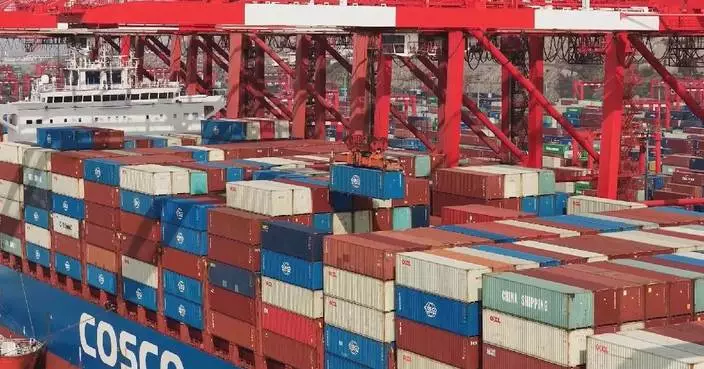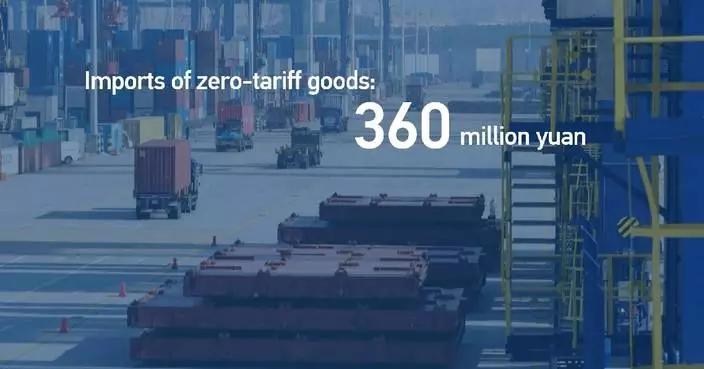Uganda's coffee export boom is brewing a dramatic reduction in its trade deficit, with the country also stepping up efforts to curtail imports.
According to official data, Uganda's trade deficit with the rest of the world dropped by 83.7 percent in February 2025 compared with the same month in 2024.
The country's trade deficit decreased from 271.1 million U.S. dollars to 44.26 million U.S. dollars over the period due to a major increase in export earnings -- especially from agricultural produce -- coupled with a decline in imports.
Coffee brought in 167 million U.S. dollars in export earnings, followed by crops like cocoa and tobacco, in February this year.
Other notable commodities that contributed to growth in export earnings in February included mineral products and fish.
"So yes, the impact is positive and my prayer is that this money that we are getting, we really invest it really properly so that we reach our dream of 20 million bags as a country, because that is what will give us a voice globally," said Robert Byaruhanga, President of the Uganda Coffee Federation.
Uganda's Ministry of Agriculture, Animal Industry and Fisheries announced that Uganda's coffee exports increased by 6.99 percent in quantity and 70.71 percent in value from March 2024 to February 2025.
"Coffee exports for the 12 months (March 2024 - February 2025) totaled 6.57 million bags, valued at 1.72 billion U.S. dollars," the ministry said.
The increase in prices for coffee to five U.S. dollars per kilogram in February, compared to three U.S. dollars same time last year, kept the books better balanced.
Meanwhile, extreme weather conditions in Brazil and Vietnam, which are global producers, led to low volumes and an increase in the price of coffee on the international market.
There are fears that the global coffee boom may be disrupted by the European Union deforestation regulation that will come into force in December this year. Uganda said it is keenly following this up and ensuring it complies with the strict environmental standards to maintain access to the lucrative market.
Trade experts believe Uganda can further reduce its import bill by adding value to its agricultural produce.
"These are some of the initiatives of government where other industries will be brought on board to be able to process, so that you sell more value but also reduce on what you're importing to produce by using local content," said Isaac Shinyekwa, head of the Trade and Regional Integration Department under the Economic Policy Research Center in Uganda.
Uganda has also started an ambitious strategy of further reducing import through local manufacturing.
And it's expected that Uganda's import bill will further reduce, driven by the oil and gas industry when the country begins producing its own oil by 2030.

Uganda's coffee export boom slashes trade deficit









